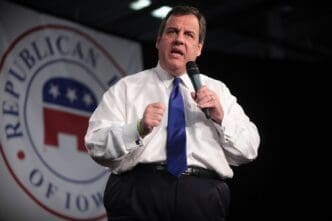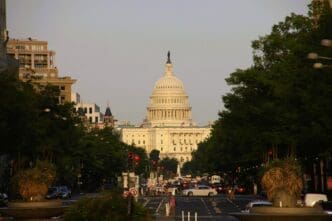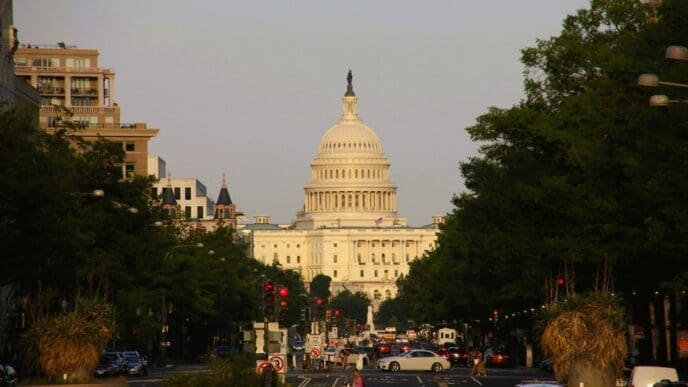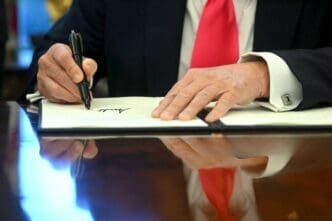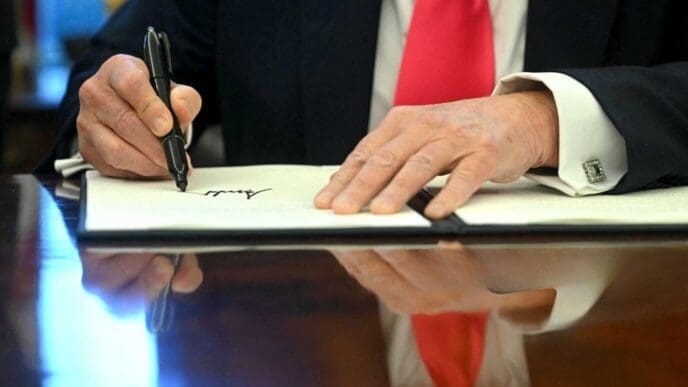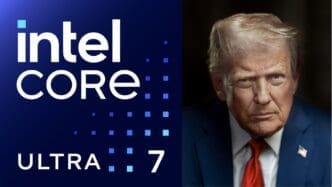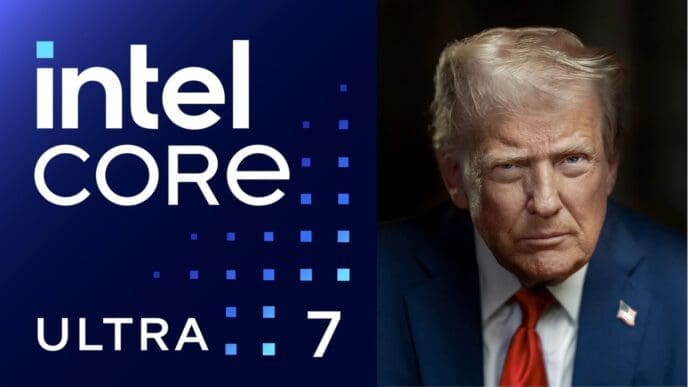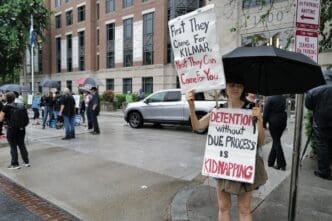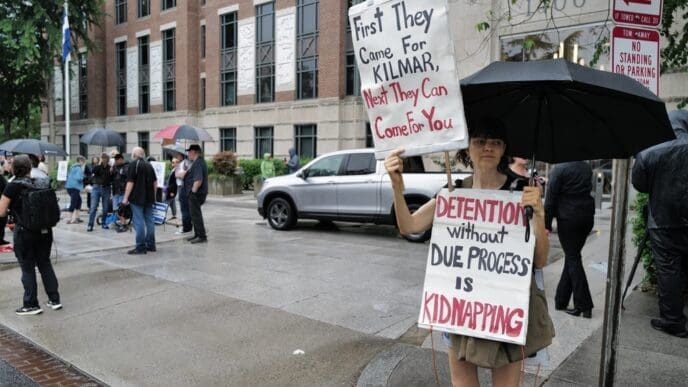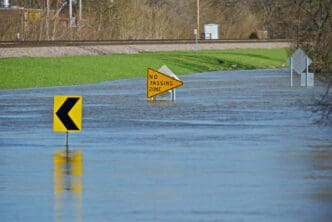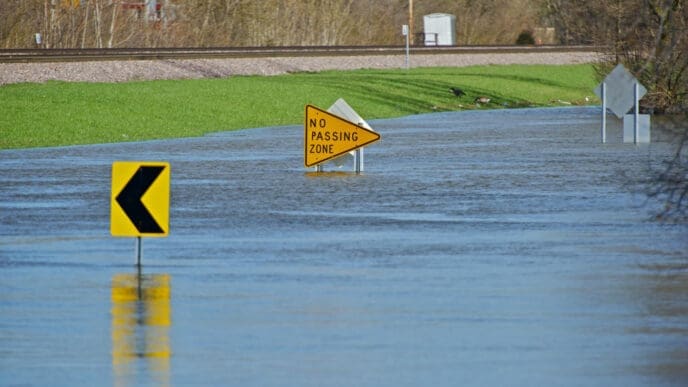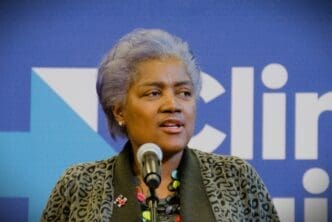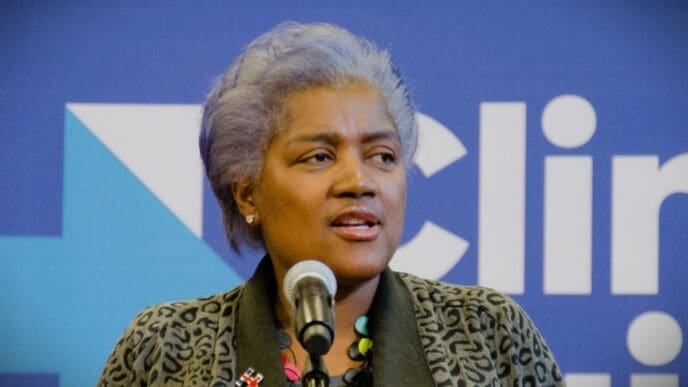Executive Summary
- President Trump threatened to investigate former New Jersey Governor Chris Christie over the 2013 “Bridgegate” scandal after Christie criticized Trump’s views on the separation of powers during an ABC interview.
- Trump called for the Federal Communications Commission (FCC) to revoke ABC News’ broadcasting license, accusing the network of providing negative coverage and being “AN ARM OF THE DEMOCRAT PARTY.”
- These calls for license revocation coincide with the FCC, under chair Brendan Carr, reopening investigations into complaints of media bias against ABC, NBC, and CBS.
The Story So Far
- The current friction between Donald Trump and Chris Christie stems from Christie’s evolution from a key ally and adviser to a prominent Republican critic, especially after Trump’s 2020 election defeat, which led Christie to challenge Trump in the 2024 primary, with Christie’s recent criticism of Trump’s views on the separation of powers directly provoking Trump’s retaliatory threats. Trump’s call to revoke ABC News’ license is consistent with his long-standing pattern of attacking media outlets he deems biased, a stance now amplified by the FCC, under a Trump loyalist, recently reopening investigations into media bias complaints against major networks.
Why This Matters
- President Trump’s threats to investigate former ally Chris Christie over an old scandal and his calls for ABC News’ broadcasting license to be revoked after critical coverage signal a potential willingness to leverage governmental and regulatory power against political adversaries and the media. These actions raise concerns about the independence of investigative bodies, the weaponization of government for political retribution, and the future of press freedom, particularly as the FCC reopens media bias investigations.
Who Thinks What?
- Donald Trump believes Chris Christie lied about the “Bridgegate” scandal and should be investigated, while also asserting that ABC News and NBC News are biased and should have their broadcasting licenses revoked. He further believes he should decide everything and rejects the separation of powers.
- Chris Christie contends that Donald Trump rejects the separation of powers and the idea of a separation between criminal investigations and the politically elected leader of the United States.
- The FCC, under chair Brendan Carr, has reopened investigations into complaints of media bias against ABC, NBC, and CBS, aligning with President Trump’s calls for license revocation.
President Donald Trump on Sunday threatened to investigate former New Jersey Governor Chris Christie over a decade-old political scandal and called for the revocation of ABC News’ broadcasting license. The threats followed an interview on ABC’s “This Week” where Christie, a former ally, sharply criticized Trump’s views on the separation of powers and criminal investigations.
Trump’s Reaction to Christie’s Interview
During the ABC interview, Christie discussed the FBI’s raid on Trump’s former national security adviser John Bolton’s home, stating that Donald Trump “sees himself as the person who gets to decide everything, and he doesn’t care about any separation.” Christie added that Trump “absolutely rejects the idea that there should be separation between criminal investigations and the politically elected leader of the United States.”
Hours later, Trump posted on his social media platform, accusing “Sloppy Chris Christie” of lying “about the dangerous and deadly closure of the George Washington Bridge in order to stay out of prison.” This referred to the 2013 “Bridgegate” scandal, where Christie aides created traffic jams to punish a local mayor. Christie was never implicated in the scandal and has consistently denied any connection.
Trump suggested a renewed investigation, stating, “For the sake of JUSTICE, perhaps we should start looking at that very serious situation again? NO ONE IS ABOVE THE LAW!” He also mocked “This Week” host Jonathan Karl and the show’s ratings.
Potential Investigation and Relationship Context
On Monday, Trump deflected a direct question about investigating Christie over Bridgegate but appeared to give tacit approval for the Department of Justice to consider a probe. “I don’t know, if they want to look at it. It’s not for me. If they want to look at it, they can,” Trump told reporters, adding, “I think we have other things to do, but I always thought he got away with murder.”
The relationship between Trump and Christie has been characterized by both alliance and conflict. Christie endorsed Trump after dropping out of the 2016 presidential primary and became a close adviser. However, following Trump’s defeat in 2020 and his efforts to overturn the election results, Christie emerged as a prominent Republican critic, eventually running against Trump in the 2024 GOP primary.
Threats Against Media Outlets
Over an hour after his initial post, Trump returned to Truth Social to target ABC News, and by extension, NBC News. He claimed both networks “give me 97% BAD STORIES” and baselessly called them “AN ARM OF THE DEMOCRAT PARTY.” Trump then asserted that, “ACCORDING TO MANY,” both networks should “HAVE THEIR LICENSES REVOKED BY THE FCC.”
These calls for the Federal Communications Commission (FCC) to strip broadcasting licenses coincide with the agency, under chair Brendan Carr, reopening investigations into complaints of media bias against ABC, NBC, and CBS. Carr, described as a Trump loyalist, reopened these probes after taking office, overturning their dismissal by his predecessor during the final days of the Biden administration.
President Trump’s recent threats against Chris Christie and major news networks highlight an ongoing tension between political figures, the media, and the potential use of governmental power in response to criticism. His social media statements suggest a readiness to leverage authority against perceived adversaries, reigniting debates about media bias and the independence of investigative bodies.

